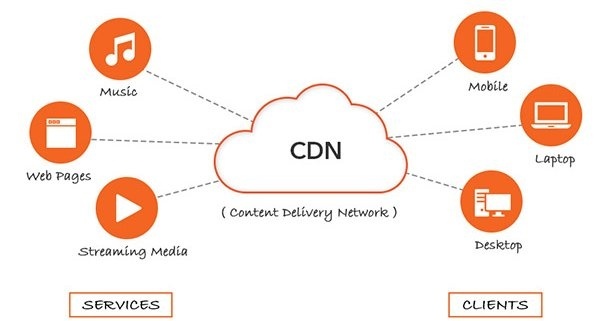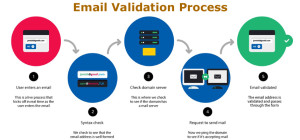If you own a website/blog and you want to boost your site performance/dominance, you’ll have to learn more about CDN.
But what is CDN, and what is it about anyway? Plus, how can it be of help to my website? That is what we will be discussing in this article.
What is CDN?
A Content Delivery Network [CDN] is just a group of servers that are distributed in different locations across the globe, and they are used to store files that are accessed by the website visitors. Each visitor will access content stored in the server near them.
One of the reasons/functions of CDN is to solve latency (when the page takes too long to load). You see, when there is a delay to load a webpage and display the content, there could be several factors behind that. One of them is the long distance between the visitor and the content delivery server.
However, when the distance is reduced by setting up multiple servers around the globe, users can access the content faster than when there is only one server.
And How Does CDN Work?
Okay, the entire process of a CDN mechanism is long and somewhat complicated, but we will make that shorter and easier for you to understand.
First off, a CDN will store a cached version of its content in several geographical locations known as PoPs (points of presence). Every PoP will have a number of caching servers that deliver the content to visitors near it.
A CDN will, therefore, put your content in different places all at once with the aim of bettering the users’ coverage.
Take, for example, you have a website hosted in the US, but a visitor in Spain wants to access it. What will happen is that the visitor will have access to your website through a local PoP in Spain. This way, the person will easily view the content without experiencing the annoying delays.
What To Know About CDN
So yes, you have a clue about how CDN works. What else should you know about it? Here are other important info you should keep in mind;
- Not All CDNs Are Equal
Yes, they are all called CDN, but it doesn’t mean that they are the same. First off, you should know that the CDN you choose will determine your overall experience. The performance of your website will depend on the provider you choose, the distance between the cache server (CDN) and the visitor, and the content cached in the CDN.
For that, you should understand your target audience geographical location before you decide to go for a specific CDN.
- The Same CDN Can Deliver Different User Experience
There might be a difference in the performance of a CDN. For example, the user can face some slowdowns or temporary unavailability of the server/CDN. But what causes this? There are three possible causes;
- There could be high traffic on a single CDN
- There might be a long distance between the user and the cache server
- Peering can cause some micro-outages.
The best way to solve this is to go for a multi-CDN option. This way, you will have enough servers distributed all across the world to make the surfing experience easy for the visitors.
- CDN can offer security to your website
You might wonder how this happens, but we will look at it.
Whenever your website is live and running, it becomes visible to anyone that can access the internet, including the spammers. So, when your CDN gives access to incoming traffic, bots, hackers, fake traffic, and spammers will all try to crawl in.
However, the CDN will block the attacks and stop them from affecting the origin server. The origin server is the main server that hosts your most vital files.
But if the fake traffic manages to compromise one of your proxy servers, your visitors can still access the content from servers.
- CDN can act as a cheap web hosting
There are many benefits of using a CDN, and one of them is to assure you of cheaper hosting compared to the standard hosting.
If you were to use a single server to store your content, it would use up a lot of bandwidth and resources. But when you diverse the content to other servers, it would, in turn, reduce the bandwidth amount used on the server that you host your website. This also means that you will have a cheaper web hosting cost.
You can actually choose a cheaper plan with your web hosting company and disperse content on other CDN servers. But don’t forget you will be needed to pay for the CDN service – though it is still cheaper than the standard web hosting.
- But they are different from standard web hosting
So, CDN services can help to reduce the cost of web hosting, but does it mean that you should or can replace it with the standard web hosting? Of course not. Web hosting and CDN are different.
You will still need to purchase a web hosting plan to go well with your content delivery network. The reason for this is because your CDN will not give out all of your website content. The proxy server will only serve specific content from your CDN. This includes images, videos, JavaScript files, CSS style sheets, and other media content. In other words, there is some content still held up in your central server, which might be what the visitor needs to see.
To help you understand more; a traditional web host offers you a server to host the whole website on it. Conversely, a CDN will give you some proxy servers around the globe for you to serve the static content from it.
A CDN will only compliment the standard web server by making the site’s performance better. Keep in mind that the website is hosted on that standard web server. A CDN might not work on its own without the web server.
Always ensure that you go for the best website hosting company for you to give your visitors a good surfing experience and also enhance the CND cooperation.








